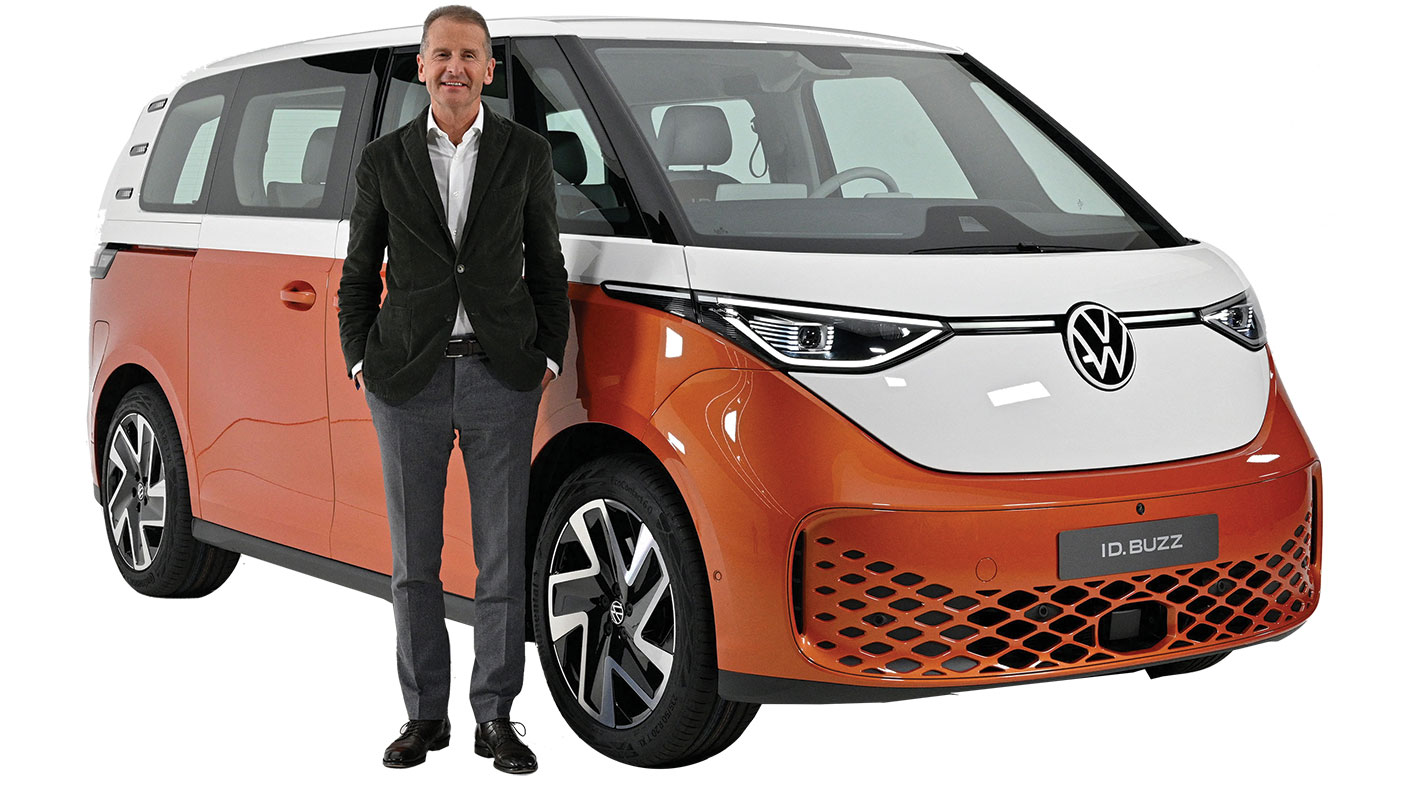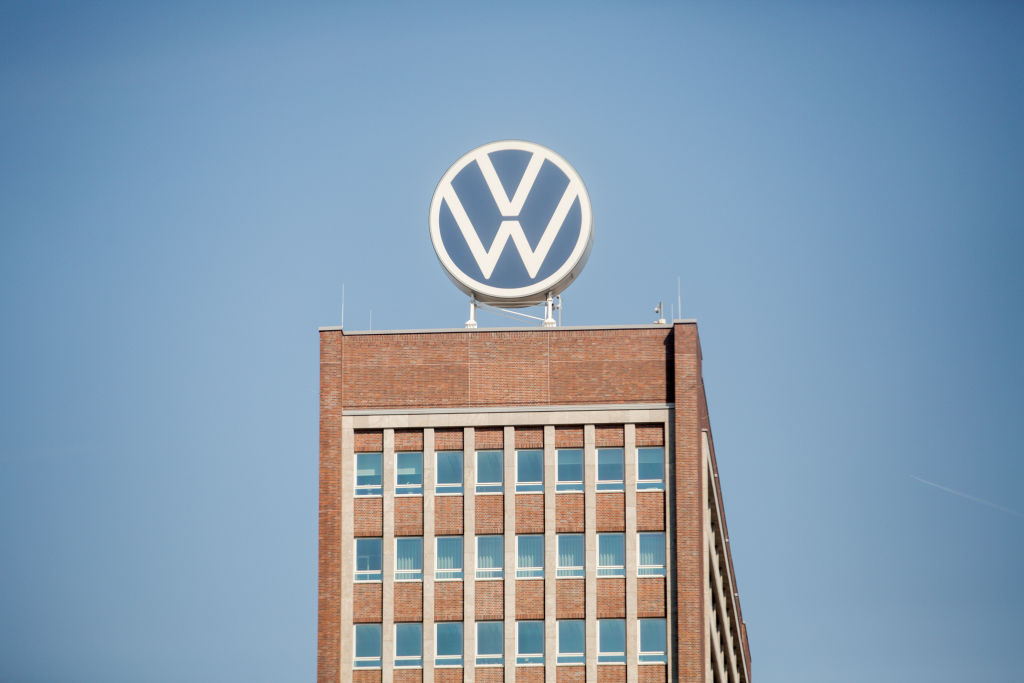Herbert Diess: VW CEO runs out of road
Herbert Diess’s tenure at VW came to a premature end after he fell foul of the group’s powerful owners. Matthew Partridge reports


Get the latest financial news, insights and expert analysis from our award-winning MoneyWeek team, to help you understand what really matters when it comes to your finances.
You are now subscribed
Your newsletter sign-up was successful
Want to add more newsletters?
Until the end of last week Herbert Diess looked “every inch the modern, global auto titan”, say John Arlidge and Jon Yeomans in The Sunday Times. However, the CEO of Volkswagen was evidently “too brash, too bold and in too much of a hurry for many of the company’s key stakeholders”. VW announced that he had been forced out three years before the end of his contract by a unanimous vote of the carmaker’s supervisory board. The move has upset many institutional shareholders, with analysts calling it “another illustration of dysfunction at VW”.
Diess’s departure was at least partly the result of “a series of public blunders”, says Joe Miller in the Financial Times. These include saying he was “not aware” of detention camps in China’s Xinjiang region and using the insensitive phrase “EBIT macht frei” at a company event. He also gained “notoriety” for his “skirmishes” with VW’s “powerful works council, which controls several seats on the company’s supervisory board”. Unions were particularly “angered” by his suggestion that the group had 30,000 excess staff and his complaints that Tesla employees managed to produce an electric car in just a third of the time it took VW.
Clashes with the workers
Diess’s gaffes and “frequent clashes with powerful worker representatives” may have played a role in his departure, but they were survivable as long as he had “unwavering support” from the billionaire Porsche and Piech family, the majority owners of VW, says Monica Raymunt and Christoph Rauwald on Bloomberg. However, his “key project failures” gradually persuaded the family that “he had to go”. These failures include delays to the “scheduled rollout of important new models, including the electric Porsche Macan SUV” as well as struggles “to muster broader support” to implement a €89bn electric-vehicle (EV) and software strategy.
Try 6 free issues of MoneyWeek today
Get unparalleled financial insight, analysis and expert opinion you can profit from.

Sign up to Money Morning
Don't miss the latest investment and personal finances news, market analysis, plus money-saving tips with our free twice-daily newsletter
Don't miss the latest investment and personal finances news, market analysis, plus money-saving tips with our free twice-daily newsletter
Still, even his harshest critics acknowledge Diess’ “strategic vision” and his “achievement in transforming VW’s culture for the [EV] age”, say William Boston and Georgi Kantchev in The Wall Street Journal. His emphasis on moving away from fossil fuels “has seen VW’s brands, including Porsche, Audi, Seat... and Bentley develop core electric models with a plan to shift fully to EVs this decade”.
The change at the top “probably won’t derail Volkswagen’s electric vehicle ambitions”, especially since Porsche – under VW’s new CEO Oliver Blume – “has rolled out the successful Taycan model and expects green vehicles to be as profitable as combustion engine cars in two years”.
A “fresh start” may even help Blume persuade the wider company to raise investment in EVs “while improving lacklustre profitability”. But Blume’s appointment could muddy Volkswagen-Porsche’s already complex governance: he will still be in charge of Porsche even though Volkswagen plans to list the luxury brand. If this set-up produces a “greater muddle”, investors “may start to miss... Diess’s gaffes”.
Get the latest financial news, insights and expert analysis from our award-winning MoneyWeek team, to help you understand what really matters when it comes to your finances.

-
 Could you get cheaper loans under ‘significant’ FCA credit proposals?
Could you get cheaper loans under ‘significant’ FCA credit proposals?The Financial Conduct Authority has launched a consultation which could lead to better access to credit for consumers and increase competition across the market, according to experts.
-
 8 of the best properties for sale with minstrels’ galleries
8 of the best properties for sale with minstrels’ galleriesThe best properties for sale with minstrels’ galleries – from a 15th-century house in Kent, to a four-storey house in Hampstead, comprising part of a converted, Grade II-listed former library
-
 Volkswagen mulls closure of German factories
Volkswagen mulls closure of German factoriesWhy is Volkswagen considering the closures and how is the carmaker performing?
-
 Three emerging markets stocks for sustainable growth
Three emerging markets stocks for sustainable growthIn emerging markets, the alignment of societal and environmental development with robust financial growth offers attractive investments.
-
 Halifax: House price slump continues as prices slide for the sixth consecutive month
Halifax: House price slump continues as prices slide for the sixth consecutive monthUK house prices fell again in September as buyers returned, but the slowdown was not as fast as anticipated, latest Halifax data shows. Where are house prices falling the most?
-
 Rents hit a record high - but is the opportunity for buy-to-let investors still strong?
Rents hit a record high - but is the opportunity for buy-to-let investors still strong?UK rent prices have hit a record high with the average hitting over £1,200 a month says Rightmove. Are there still opportunities in buy-to-let?
-
 Pension savers turn to gold investments
Pension savers turn to gold investmentsInvestors are racing to buy gold to protect their pensions from a stock market correction and high inflation, experts say
-
 Where to find the best returns from student accommodation
Where to find the best returns from student accommodationStudent accommodation can be a lucrative investment if you know where to look.
-
 The world’s best bargain stocks
The world’s best bargain stocksSearching for bargain stocks with Alec Cutler of the Orbis Global Balanced Fund, who tells Andrew Van Sickle which sectors are being overlooked.
-
 Revealed: the cheapest cities to own a home in Britain
Revealed: the cheapest cities to own a home in BritainNew research reveals the cheapest cities to own a home, taking account of mortgage payments, utility bills and council tax